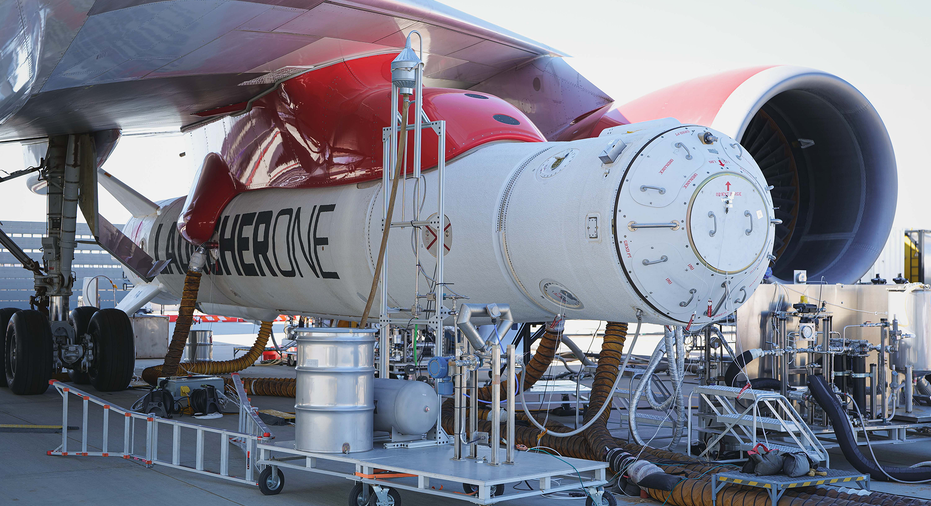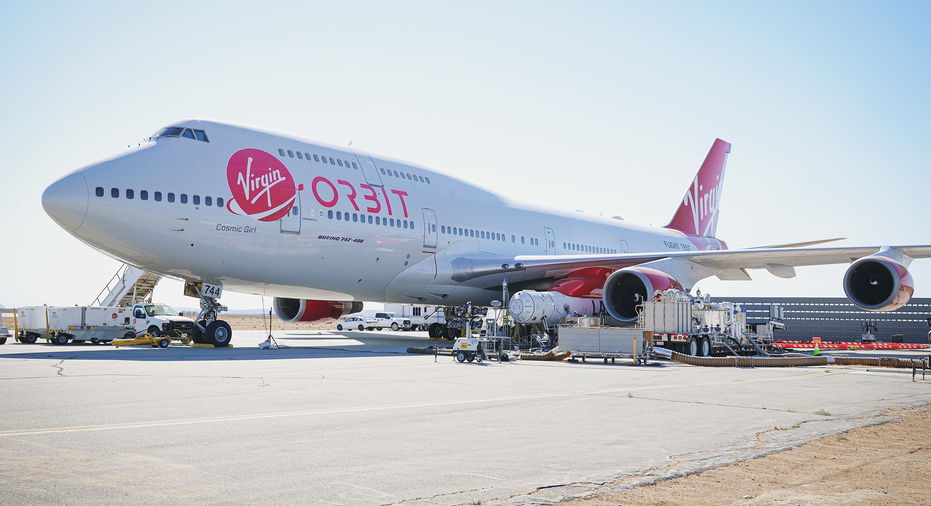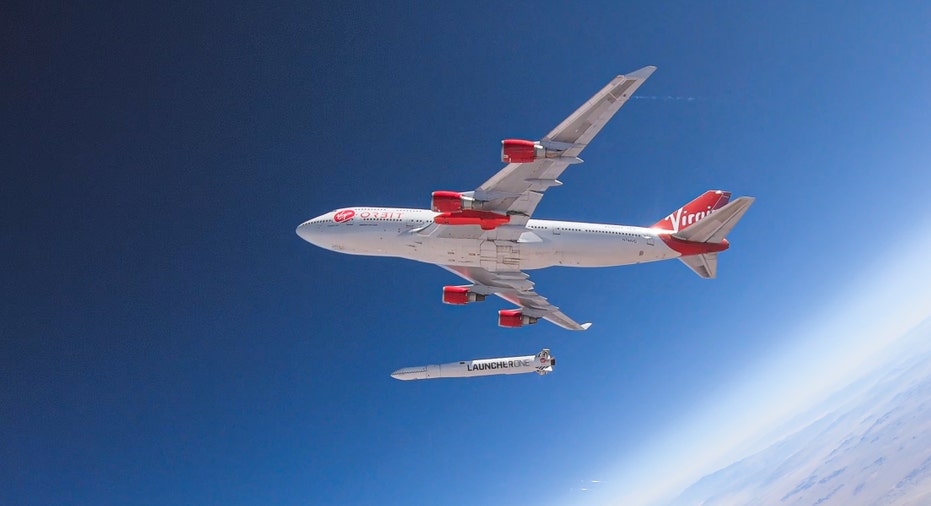Richard Branson's Virgin Orbit to go public through SPAC
The deal values Virgin Orbit at approximately $3.2B
Former astronaut: Space tourism will soon be affordable for middle class
Former NASA astronaut Jose Hernandez argues space flight costs will come down.
Richard Branson's satellite launch company, Virgin Orbit, will make its stock market debut on the Nasdaq through a merger with special purpose acquisition company NextGen Acquisition Corporation II.
"I’m very excited we are taking Virgin Orbit public, with the support of our partners at NextGen and our other wonderful investors," Branson said in a statement. "It’s another milestone for empowering all of those working today to build space technology that will positively change the world."
A SPAC is a shell company with no active business operations that are listed on major exchanges where investors can buy shares. They use funds raised by their sponsors and investors to acquire other companies.
The deal, which values Virgin Orbit at approximately $3.2 billion, will list the company's shares under the ticker symbol VORB.
BRANSON'S VIRGIN ORBIT PLANS NEW SATELLITE LAUNCHES IN 2022
The transaction will provide the combined company with up to $483 million in cash proceeds, including up to $383 million of cash held in the trust account of NextGen and a fully committed PIPE led by Boeing and AE Industrial Partners offering $100 million at $10 per share.
The proceeds from the business combination and PIPE transaction are expected to go towards scaling rocket manufacturing and funding Virgin's space solutions business and ongoing product development initiatives.
Existing Virgin Orbit shareholders will roll 100% of their equity into the combined company. Assuming no redemptions by NextGen’s shareholders, existing Virgin Orbit shareholders are expected to retain ownership of approximately 85% of the combined company, while NextGen’s public shareholders are expected to own approximately 10% of the combined company and PIPE investors and the SPAC sponsor are expected to own approximately 3% and 2%, respectively, immediately following closing.
GET FOX BUSINESS ON THE GO BY CLICKING HERE
The deal, which has been unanimously approved by the NextGen and Virgin Orbit boards of directors, is expected to close around the end of the year, subject to approval by NextGen shareholders and the satisfaction or waiver of customary closing conditions.
According to the Wall Street Journal, Branson's Virgin Group owns about 80% of Virgin Orbit, while Mubadala Investment Company, the United Arab Emirates sovereign-wealth fund, owns the rest.
CLICK HERE TO READ MORE ON FOX BUSINESS
The announcement comes as the market for satellite launches is growing at the "highest rate it's ever been," according to Virgin Orbit's vice president of flight and launch activities, Tyler Grinnell.
Following a successful launch on June 30 carrying a payload of seven satellites for the Department of Defense Space Test Program, Poland's SatRevolution, and the Royal Netherlands Air Force, Grinnell told FOX Business in July that Virgin Orbit is slated for another satellite launch in the fourth quarter of this year, followed by a busy two years.
"Next year, we're looking to be just under double digits with launches and looking to nearly double that the following year," he said.
Richard Branson's satellite launch company Virgin Orbit will make its stock market debut on the Nasdaq through a merger with special purpose acquisition company NextGen Acquisition Corporation II. (Photo courtesy of Virgin Orbit)
Virgin Orbit uses a technique called air launch, in which its 70-foot-long, 57,000-pound LauncherOne rocket is released at an altitude 35,000 feet from under the wing of a 747-400 jet aircraft, dubbed Cosmic Girl, rather than from a traditional launch pad on the ground.
After a 4-second freefall, LauncherOne's first stage engine ignites, accelerating the rocket to approximately 8,000 miles per hour. From there, the second stage engine kicks in, taking LauncherOne to a maximum speed of 17,500 miles per hour.
In addition to improving the payload capacity of the rocket, the technique allows LauncherOne to fly on short notice from a wide variety of locations. LauncherOne can carry satellite payloads weighing between 300 and 500 kilograms.
Virgin Orbit will work with UK-based Arqit Limited, a leader in quantum encryption technology, to conduct two satellite launches to low Earth orbit beginning in 2023. It will also work with defense and security company QinetiQ and geospatial analytics company HyperSat to launch six satellites to low Earth orbit no earlier than 2023.
























